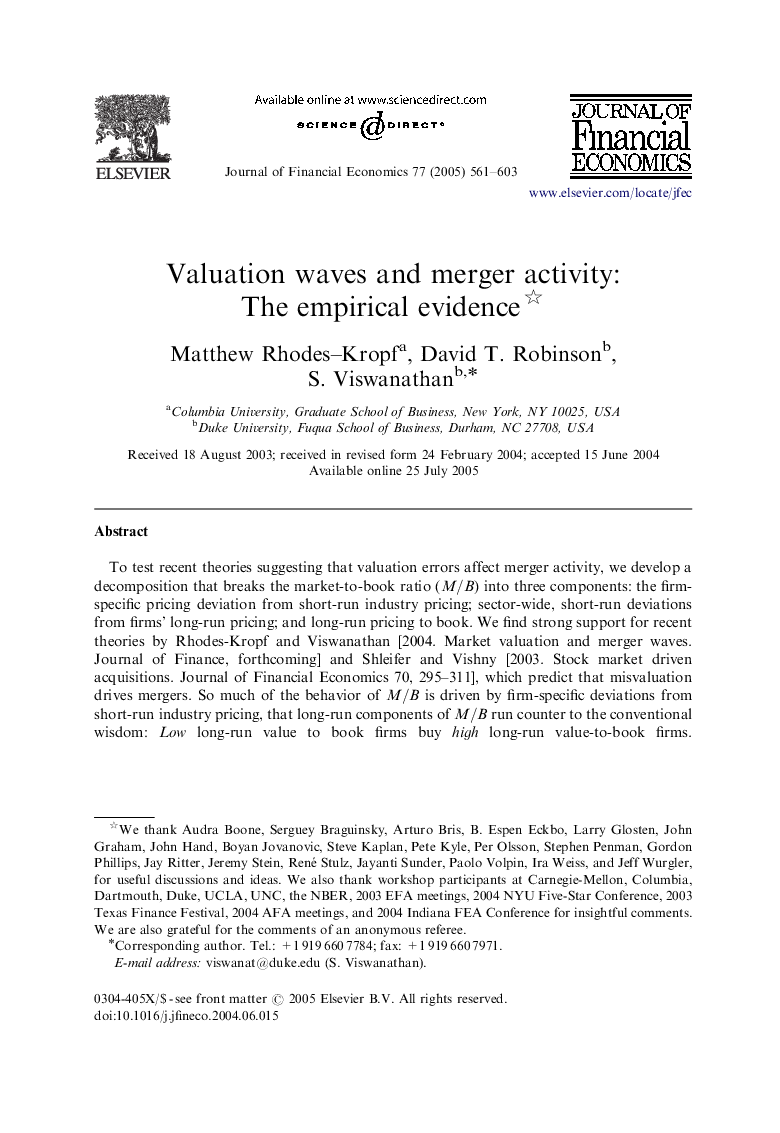| Article ID | Journal | Published Year | Pages | File Type |
|---|---|---|---|---|
| 10475890 | Journal of Financial Economics | 2005 | 43 Pages |
Abstract
To test recent theories suggesting that valuation errors affect merger activity, we develop a decomposition that breaks the market-to-book ratio (M/B) into three components: the firm-specific pricing deviation from short-run industry pricing; sector-wide, short-run deviations from firms' long-run pricing; and long-run pricing to book. We find strong support for recent theories by Rhodes-Kropf and Viswanathan [2004. Market valuation and merger waves. Journal of Finance, forthcoming] and Shleifer and Vishny [2003. Stock market driven acquisitions. Journal of Financial Economics 70, 295-311], which predict that misvaluation drives mergers. So much of the behavior of M/B is driven by firm-specific deviations from short-run industry pricing, that long-run components of M/B run counter to the conventional wisdom: Low long-run value to book firms buy high long-run value-to-book firms. Misvaluation affects who buys whom, as well as method of payment, and combines with neoclassical explanations to explain aggregate merger activity.
Related Topics
Social Sciences and Humanities
Business, Management and Accounting
Accounting
Authors
Matthew Rhodes-Kropf, David T. Robinson, S. Viswanathan,
